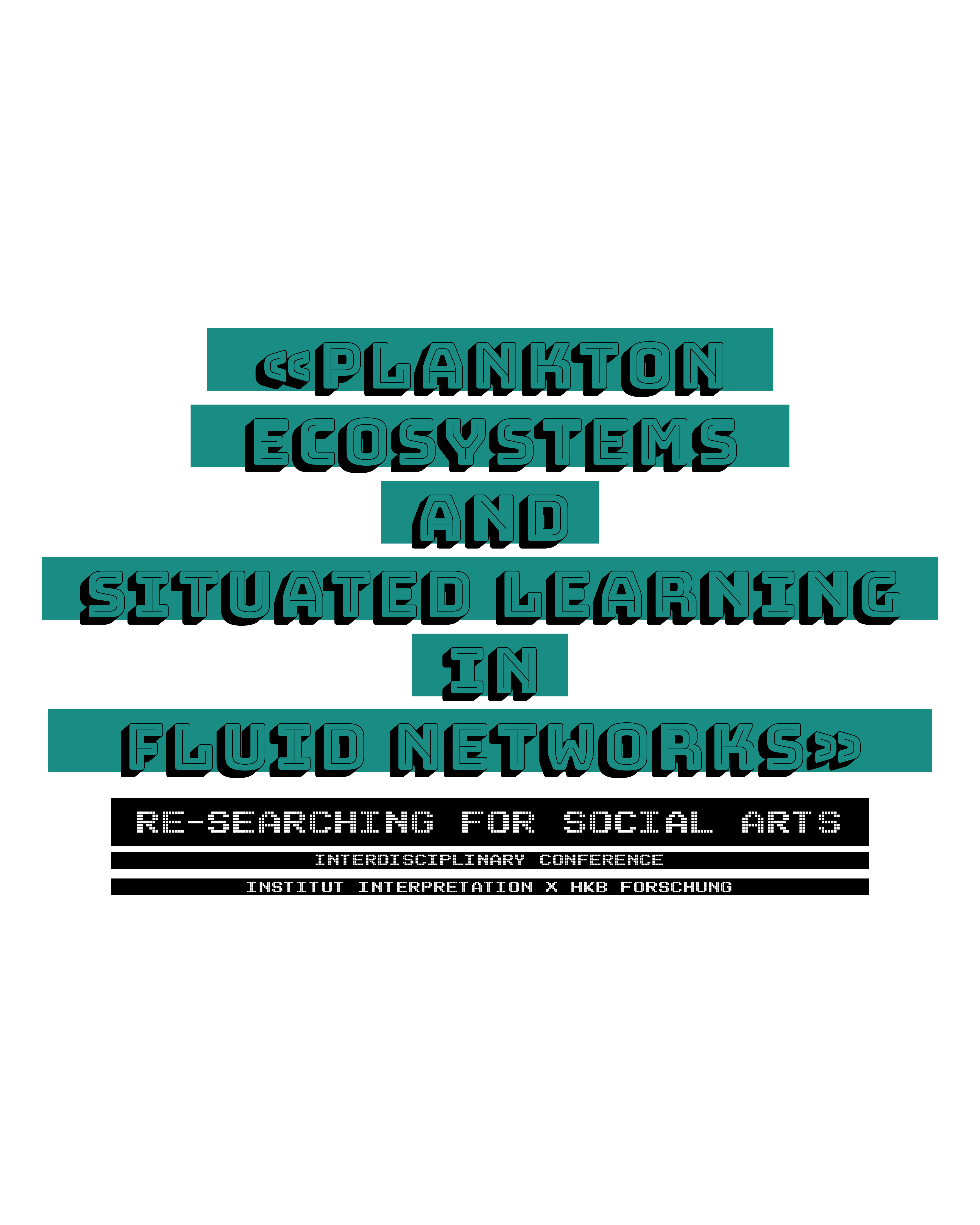
interdisciplinary conference „Re_Searching for Social Arts“ | Institute Interpretation HKB:
«Plankton Ecosystems and Situated Learning in Fluid Networks»
Wednesday, January 15
10.30-12.30
HKB, Kammermusiksaal
Papiermühlestr. 13a, Bern
Check the full Programm
Focusing on the intersection of oceanic literacy, artistic practices, and mediation, the thesis investigates how collaborations between art and science can contribute to the care of bodies of water. It analyses EcoArtLab’s intervention “Plankton Ecosystems – Shaping the Narrative of Climate Change” through artistic research. In collaboration with experts in environmental science, marine biology, and visual art, it explores plankton’s role in marine ecosystems and its impact on climate. The project integrates art and community science to deepen understanding of aquatic ecosystems through participatory formats such as study groups, talks, and workshops.
The research methodology is grounded in artistic research and uses situated approaches to studying aquatic ecosystems. Through film, storytelling, and sensory experiences of water, like diving, it explores how these practices can connect imagination, emotion, and physical reality. It also investigates community science practices, examining how they can democratise scientific knowledge and promote relational ecological practices.
This presentation will focus on the key principles and the practical part of Riikkas doctoral research, as well as addressing the question of why Riikka works with plankton. The presentation will contextualise the seemingly mundane role of plankton and highlight its exceptional forms of life.
the presentation will be held in english
about the conference:
The national, interdisciplinary conference combines research and practice in cultural mediation and explores various approaches to participation. The focus is on the two questions of how art can be experienced and shaped in an intensive way and to what extent social and scientific potential can be discovered and utilised in the process. A particular focus will be on inclusion and specific approaches to barrier-free cultural participation.
The programme includes lectures, a research / ideas workshop and contributions from ongoing student projects with elderly people.
Languages: chacun·e sa langue.
«Plankton Ecosystems and Situated Learning in Fluid Networks»
Wednesday, January 15
10.30-12.30
HKB, Kammermusiksaal
Papiermühlestr. 13a, Bern
Check the full Programm
Focusing on the intersection of oceanic literacy, artistic practices, and mediation, the thesis investigates how collaborations between art and science can contribute to the care of bodies of water. It analyses EcoArtLab’s intervention “Plankton Ecosystems – Shaping the Narrative of Climate Change” through artistic research. In collaboration with experts in environmental science, marine biology, and visual art, it explores plankton’s role in marine ecosystems and its impact on climate. The project integrates art and community science to deepen understanding of aquatic ecosystems through participatory formats such as study groups, talks, and workshops.
The research methodology is grounded in artistic research and uses situated approaches to studying aquatic ecosystems. Through film, storytelling, and sensory experiences of water, like diving, it explores how these practices can connect imagination, emotion, and physical reality. It also investigates community science practices, examining how they can democratise scientific knowledge and promote relational ecological practices.
This presentation will focus on the key principles and the practical part of Riikkas doctoral research, as well as addressing the question of why Riikka works with plankton. The presentation will contextualise the seemingly mundane role of plankton and highlight its exceptional forms of life.
the presentation will be held in english
about the conference:
The national, interdisciplinary conference combines research and practice in cultural mediation and explores various approaches to participation. The focus is on the two questions of how art can be experienced and shaped in an intensive way and to what extent social and scientific potential can be discovered and utilised in the process. A particular focus will be on inclusion and specific approaches to barrier-free cultural participation.
The programme includes lectures, a research / ideas workshop and contributions from ongoing student projects with elderly people.
Languages: chacun·e sa langue.


